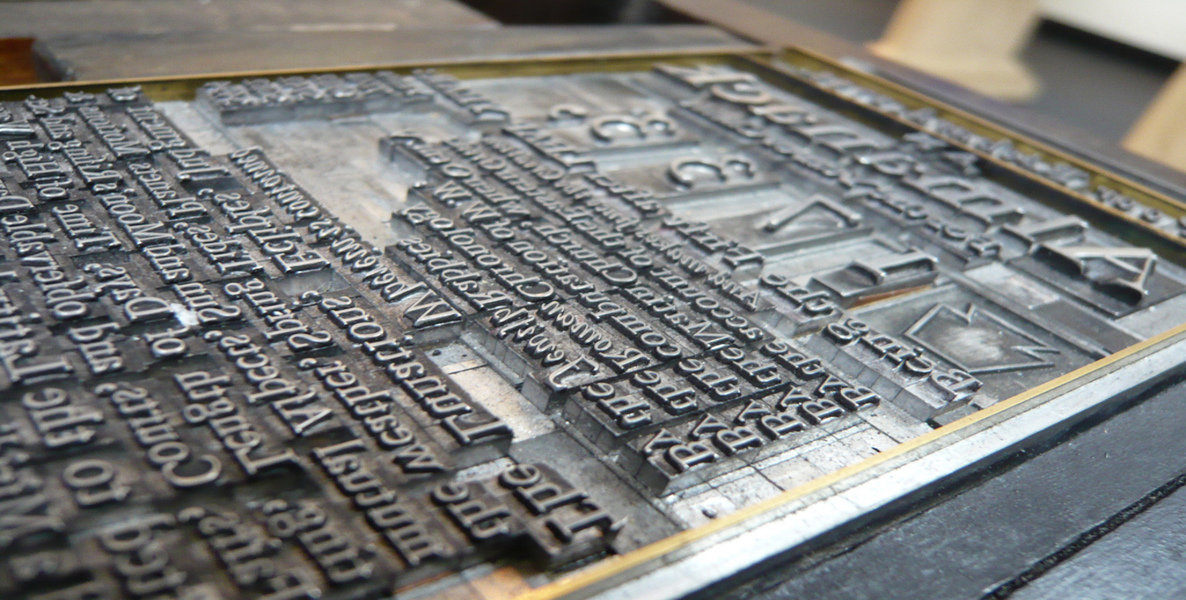As a student of American history (and an unapologetic, if sometimes doubtful, American exceptionalist), I was excited to read Diana Lind’s recent column, The Once and Future Publishing Capitol. Her premise: Could Philly become a publishing capitol again?

The American identity is a concept that frankly (Franklin?) might not exist without the publishing powerhouses located in Old City. Curtis, Winston, Lippincott, Zell, Carey & Lea—all were titanic men who built empires in their image. (There were also a few women printers/publishers in the 19th century but those businesses did not achieve the same scale.)
Think of the glassmakers of Murano, the artists of renaissance Firenze, the revolutionary statesman of Philadelphia, the technobrats of Silicon Valley. Clustering is a real thing and I’d be gung-ho for Philly to achieve some status as the single best place to be located as a media entrepreneur, engineer, or grant seeker/recipient.
As a matter of fact, Philadelphia already has a better than average indy media scene. The Citizen, Technically Media, Spirit News, The Notebook, Geekadelphia, Hidden City, PlanPhilly, City & State PA, Vox Media (SB Nation, Curbed, Eater), Philly Voice, and Billy Penn, which sprang out of Digital First Media and has jumped for that difficult ladder of scaling local journalism in multiple cities at once. Plus, as Lind mentioned, that baby behemoth, The Lenfest Institute.
But there are some hard truths to swallow, namely the fact that no one has proven scalable business models in digital publishing. What I see is print dollars to digital dimes to mobile pennies and apparent confirmation bias that Facebook-propelled paywalls will help re-establish revenue bases. It’s certainly possible that the “three-legged stool” solves our financial woes, but it seems that the same old capital is propping up millennial-focused startups with relatively minor investment and major supporting rhetoric. I believe that this might be appropriately called a “hedge” as the legacy and core businesses unwind.
Media tends to treat city news as incremental stories in an otherwise static canvas, but when we look back to historical media we see that it’s possible for outlets to take a more active role in the unfolding of a city’s narrative.
The problem here is admittedly chicken or egg. I’m saying investors are pushing unproven business models and we should be wary; that will only be true until it’s not and it’ll be difficult for anyone to identify what the inflection point might be. Fortunes can be prepared in bear markets! But jumping wave to wave and hiding in the froth is no way to build the next Curtis Publishing Company, one of the most influential publishers of the last Century, which put out the Saturday Evening Post and Ladies Home Journal (among others).
What would it take to build the next Curtis? And if the business models aren’t ready yet, what can technologists and media entrepreneurs be doing in the meantime to prepare things?
Work with the Lenfest Institute, for one. Philadelphia Media Network is not only the property of the Lenfest Institute, but it should also be the major focus of its operations in the early years. PMN ‘s newsrooms could be one of the most powerful in the country but there’s opportunity to pursue massive collaborations seeking true impact. What is the Rebuild equivalent for Philly media? Where is PMN’s infrastructure weakest and how could its strengths be used to boost other outlets? Despite popular belief, audience is not a zero-sum game, especially when we start optimizing for impact.
Support Temple students. I’ve written about the pipeline problem in media tech and product. Bottlenecks in engineering and product management were a consistent problem at PMN, and between David Boardman, Aron Pilhofer, Jim MacMillan, Jill Bauer, and others at Temple, the Klein College of Media and Communication has an opportunity to dominate this space for the state and maybe region. No reason we can’t have our own version of Northwestern’s kickass Knight Lab! So many of my peers in the media tech/product field came out of that program, and it’s amazing what a little programming, talent, and community can do for a school.
Figure out how Drexel relates. I worked with Drexel students briefly when Gerry Lenfest sponsored Drexel University students to build an app (I expect this project will be an amplification grant recipient, too). Though we got to work with some great journalism students, we did not get to spend much time with Drexel’s impressive cadre of engineers, data scientists, and other technically minded individuals—engineering had been outsourced to Vietnam. I’m not sure precisely how Drexel and Temple could fairly divide the board, but if clustering is the goal, it’s essential both institutions are playing a role.
What is the Rebuild equivalent for Philly media? Where is PMN’s infrastructure weakest and how could its strengths be used to boost other outlets? Despite popular belief, audience is not a zero-sum game, especially when we start optimizing for impact.
Prepare the climate for technology-driven small and midsize businesses. The wage tax is kinda regressive, Business Privilege Tax leaves a sour taste in your mouth, and now our furniture-heir governor wants to bring back an awful 90’s-era tech tax. Talk to Alex Hillman of Indy Hall if you need ideas on how to help. He represents the best of the Philly business vibe and there’s a whole mayoral campaign that could be run within this bullet-point.
Listen to the youth. In a town that tends to respects party, seniority, and collegiality highly, I wonder what Philadelphia could add to the conversation if we really listened to our audiences and constituents. Media tends to treat city news as incremental stories in an otherwise static canvas, but when we look back to historical media we see that it’s possible for outlets to take a more active role in the unfolding of a city’s narrative. What role should media play today? We can elevate marginalized voices and empower them with resources for their own efforts, not just ask them to contribute to ours. Investigative journalism is, counter-intuitively, a prime tactic for pursuing the trust of audiences who might have phased out of legacy media. PMN’s investigative team and the Philly Declaration have pursued Right-To-Know reporting that shines a light on the internal machinations of party and bureaucracy in a city that feels the undertow of corruption (even if we dress casually for the occasion).
Davis Shaver is software developer at Alley Interactive, the digital team for publishers. You can find him online at his blog & on Twitter. This piece was adapted from the original.
Header Photo: Purdman for Flickr



